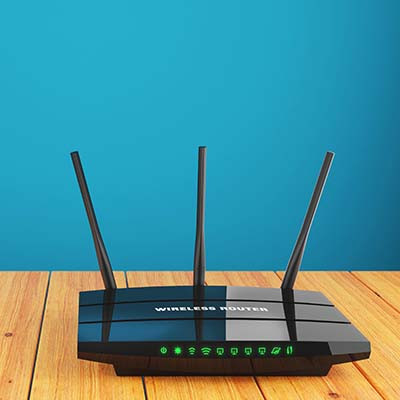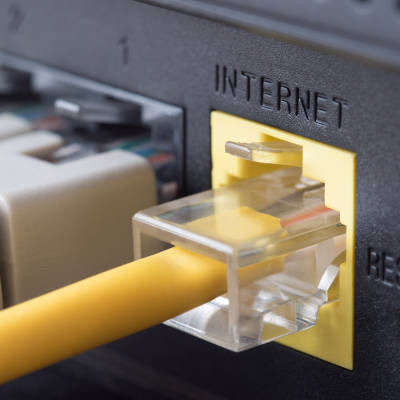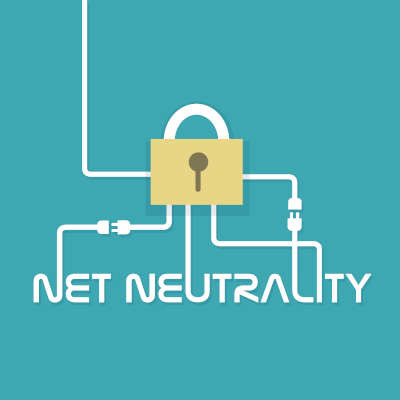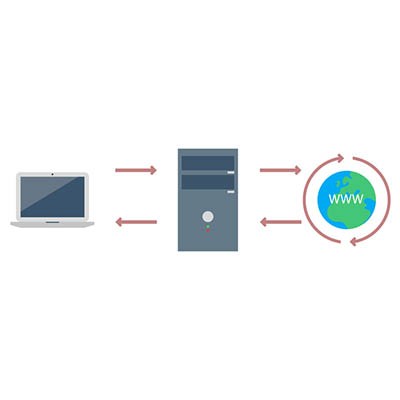k_Street Consulting, LLC Blog
Google Search is a cornerstone of the internet, used by billions of people daily to find information quickly and efficiently. But have you ever wondered what happens behind the scenes when you type a query into Google and hit "search"? Let's dive into the intricate process that powers the world's most popular search engine.
The past several years have brought about dramatic increases in internet speeds, further fueling online activity and allowing businesses to innovate in all kinds of ways. Here are five of the best benefits that these increased Internet speeds have brought about for small and medium-sized businesses.
Augmented reality is one of the more intriguing technologies that have come along in recent years, and businesses have begun to use it in pretty interesting ways. In today’s blog, we thought we’d go through three of the most popular and effective use cases of AR and the effect it can have on your business.
The web is filled with all types of content, and depending on where you live, it can be regulated by a myriad of organizations from all sections of society. From internationally recognized trade organizations to governments to industry regulators, there are a lot of moving parts in data regulation as it now stands. That leads to people wanting more control over data and censorship. Let’s take a look at cyber censorship and how it's a bigger issue than you might think.
Technology is one part of today’s business world that is known for its rapid rate of growth and innovation. In times when the future is uncertain, you can know with certainty that technology will continue to grow and address the pain points of tomorrow’s companies. That said, let’s take a look back to the past and see if we can make some educated guesses as to what the future holds.
The word “bandwidth” is thrown around a lot in business technology, but what does it really mean? Today, we wanted to cover some of the frequently asked questions business owners have about network bandwidth and what it specifically means for business technology infrastructures and data management as a whole.
Businesses have been starting to embrace the Internet of Things (IoT) for quite some time now as they can see the benefit of using devices to streamline parts of their business processes that may not be actively engaging. There is another growing trend in the space that is more sophisticated and could be one of the most transformative technologies in the near future, this is the Industrial Internet of Things (IIoT). This month, we discuss what the IIoT is and how it can be used by certain companies to massive benefit.
Google is a tool that everyone uses to varying degrees, but the reality is that Google is but one search engine. There are others out there, and while they perform similar functions, there is a reason why Google is synonymous with web browsing. Let’s take a look at why Google is so popular, as well as how it works to give you the best search results.
It hasn’t been too long since connectivity required an actual physical connection between the connecting endpoints, making a wired connection the de-facto option for businesses. However, now that wireless connectivity is so widely available, businesses now have a choice… but which is the better option? Let’s compare some of the pros of each to make the answer a little clearer.
You’d be hard-pressed to find a business that doesn’t rely on the Internet in some way, and everyone uses web browsers as a method of interfacing with the Internet. These browsers, however, are not necessarily the most secure applications by default. With some adjustments to the features, you too can optimize security and privacy when using your preferred web browser.
Just about all modern businesses rely on the Internet—especially the wireless kind—for at least part of their day-to-day operations. This means that there is a direct correlation between the strength and speed of their connection and the amount of productivity they can experience as a result of this connection. As your business grows, it is incredibly important to think about your Wi-Fi setup and how you can support its continued growth. Let’s go over the process for properly scaling your wireless network to accommodate its growth.
Over the week of June 14, a lot of applications and websites experienced outages, creating problems for many companies until it was resolved. Not only did these outages create business continuity issues, they’ve also exposed just how vulnerable the Internet is to these kinds of issues. Let’s take a look at what happened.
When the Internet was established, it was a marvel. Now people could move information across the world in a matter of seconds. This is why the term “world wide web” was coined. Nowadays, there are literally billions of users on the Internet and the rules have had to be changed. This has some online services in conflict with government regulations and has an impact on how users are able to use the Internet. Let’s look at a couple of examples.
Internet connectivity is an increasingly important component to a business’ capabilities in this day and age, as well as all the more crucial to an individual’s everyday life. However, with financial difficulties restricting this access for many, the Federal Communications Commission has stepped in. With a $50 subsidy being made available to low-income homes each month, this situation warrants a closer look.
In the United States, the political atmosphere in 2020 was extremely testy and one element that we typically keep our eyes on is the net neutrality rules that seem to change every few years or so. Today, we thought we’d revisit the issue and tell you what to expect over the first few months of the new administration.
As the most common Internet browser, Google Chrome is in a position where they always need to be coming up with new draws to maintain their hold on the market. Their latest efforts may help them to do so. Let’s take a moment and examine what Chrome is implementing, and how you can use it to your advantage.
We’re all familiar to some degree with the security measure known as CAPTCHA. You know the one—you usually see it when filling out forms or logging into sites online, where you have to prove that you’re a human being by identifying which of a variety of images fit a certain description. You may have noticed that these tests have gotten far more difficult over time. This is because, predictably, computers are getting better at beating them.
Searching for something on Google seems stunningly self-explanatory: type in what you’re looking for, press Enter, and like magic, it appears. However, there is a lot more that you can do, if you know how to use Google’s full capabilities. Let’s go over how these capabilities can be harnessed to your advantage as you perform your next search.
Millions of Americans are suddenly working from home. Students are now learning online. We’re all surviving the quarantine by binge watching our favorite shows on Netflix and Zooming with our friends and family. How does this bode for the Internet, and security in general? Let’s discuss some recent findings.
The average person’s mobile plan comes with a data cap. It’s for this reason the Wi-Fi hotspot is looked on as an essential tool, especially with so much content available nowadays. With 5G on the horizon, some reports have suggested that Wi-Fi will be phased out by ubiquitous wireless Internet access. Turns out, in the immediate future, the Wi-Fi hotspot isn’t going anywhere.
The modern business uses IT in so many ways that aim to make a business move faster, be more efficient, and ultimately, produce more than it would have without that technology. Each of these technologies are powerful in their own right, but they depend on two variables: electricity and a reliably fast Internet connection. When your Internet connection isn’t doing your business any favors, you need to look into why you aren’t getting the network speeds you are paying for. After all, your business depends on it. Today, we will take a look at a few ways you can go about troubleshooting a slow Internet connection.
The way your business accesses data is changing. Just a few years ago, you couldn’t imagine that you would have a comprehensive strategy to keep data secure when sending and receiving it wirelessly, but today wireless transmission methods have become more secure, reliable, and fast. Today, we’ll take a look at the difference between wired and wireless connections in the modern business.
The Internet has expanded people’s ability to do business, and with it has spurred on a series of innovations that have effectively changed the world. With today’s businesses almost assuredly spending on at least one cloud-based solution, and with mobility eking into almost every business in one form or another, the demand for more bandwidth is something most businesses are wrangling with. Today, we’ll describe what having enough bandwidth means.
Most people know what a URL is. It’s the address of a website, typically starting with http:// or https://, and it is essentially the location of a web page or application that can be accessed through a web browser or application. Nowadays, URLs are being manipulated by actors for both positive and negative means. Let’s take a look at URL manipulation and how it could affect you.
I don’t think we’re going too far out on a limb when we say that the Internet is one of the most amazing inventions ever concocted by humans. 50 years ago, the precursor to the Internet, ARPANET was launched by the U.S. Department of Defense at four west coast universities, changing the way people shared data forever. Let’s take a look at ARPANET and how it grew into the Internet we all use constantly today.
The Internet is a vast and amazing place. Some have even argued that it is one of people’s best-ever inventions. Some would push it further by actively attempting to outline what rights an Internet user has. Advocacy groups have been popping up, and while it has had a marked effect on public policy in more progressive nations, some nations look on these groups with disdain. Today we will take you through human rights advocacy on the Internet, and what to expect going forward.
If there is one thing that we all know about 5G it is that it’s coming? It’s been coming for years. For a decade, the next biggest thing has been 5G. We’ve routinely heard statements like “When we get 5G…” Many of which came from people that had no idea what the “G” in 5G even means (It literally stands for “generation”). Today, we’ll separate the facts from the fiction to get you up to speed on 5G.
Consider the following question: is your business’ Internet connection feeling a bit sluggish lately? If you haven’t examined your bandwidth since you started your business, then there’s a chance that you aren’t being as productive as you could be if you took a closer look at it. We’ll discuss some ways you can make the most of your IT solutions with proper bandwidth.
Colleges and universities are part-time homes to more than 16 million people, and employ over 1.5 million more. Most of them utilize the networks set up by the college’s bevy of IT administrators. If you consider that most people have difficulty keeping viruses and other malware off of their personal computers, opening up networks that facilitate this kind of user demand can be tricky. Today, we ask: can a campus’ network every truly be secure?
Net Neutrality in the United States has been a hot-button issue for almost anyone that uses the Internet. 2018 saw the 2005 principles governing the preservation of an open Internet repealed completely, leaving control over the Internet in the hands of huge companies that deliver Internet services to people. Today, we’ll go back over Net Neutrality and provide an update of what has happened since the Federal Communications Commission repeal of net neutrality laws.
Anyone that has spent any time online recently is sure to have come across something they’ve perceived as deplorable. For all the good that it does, some of the most divisive of human interaction happens on the web. Since it really depends on your perspective just how much negativity you take from the Internet, we’ll go through the good, the bad, and the ugly of the Internet to put into perspective just how it affects our lives.
It would be an understatement to say that security, particularly encryption, is important while browsing the web. Though it was only recently that encryption became a major pain point for government regulation, encryption has been around for a very long time. The average user can get a taste of online encryption through the average website security certificate.
Here’s a question we want you to take a second to consider...How much do you rely on the Internet? The answer for almost everyone is that it is essential to your current quality of life. Technologies have been developed, industries have been launched, and literally billions of people use it every day, making it one of the predominant inventions in human history. At the heart of this phenomenal technology is bandwidth.
Technology has become essential to workplace functionality and personal productivity, but while the long hours spent glued to our tech during the workday are a necessity, the time we spend at home with our personal devices is definitely voluntary. However, more and more people - children especially - are finding it harder to let their devices power down.
Your server room may be somewhat intimidating to consider. Wires everywhere, mechanical boxes that just sit there, lights blinking intermittently, and the distinct feeling that you probably shouldn’t touch anything - not even a proxy server, whatever that is. However, to help you get to know your tech, the proxy server is exactly what we discuss below!
So, like millions of others, you’ve taken to making purchases and paying your bills online. The speed of delivery, the ease, and the convenience are truly remarkable considering where we were just a couple short decades ago. But, have you ever considered what exactly makes up the technology that protects your personal information--and your money--from theft while operating on the Internet? We’ll take a short look at the technology that is constantly working to protect your Internet transactions.
It’s well-known that publishers are a major component of an author sharing their work with the world, but recent innovations threaten to disrupt the status quo of the industry. Like many industries, the publishing industry has been changed significantly by the introduction of new technologies that afford writers more liberty when producing their work. What can the business owner learn from these changes?
Thanks to the advancements of virtualization and cloud computing, many businesses are hosting key parts of their IT infrastructure off-site. While this move is great for mobility and productivity, it makes operations extremely dependant upon a working Internet connection. If this scenario describes your organization, what’s your plan to stay productive should your Internet connection fail?
 Not that long ago, the trading floor of the New York Stock Exchange was filled with business-tie clad gladiators, climbing over each other in what looked like a capitalism-induced mosh pit. The Open Outcry pit had its language, its own weather, its own smell. Nowadays, these pits are more subdued. They still are populated with people, and some are gesturing to buy and sell, but most of the transactions are done digitally. It is this role where the computer has changed the way financial markets work; from the ground up.
Not that long ago, the trading floor of the New York Stock Exchange was filled with business-tie clad gladiators, climbing over each other in what looked like a capitalism-induced mosh pit. The Open Outcry pit had its language, its own weather, its own smell. Nowadays, these pits are more subdued. They still are populated with people, and some are gesturing to buy and sell, but most of the transactions are done digitally. It is this role where the computer has changed the way financial markets work; from the ground up.
 We’ve all become so adapted to the conveniences of the Internet that it’s difficult to remember what society was like before it. This becomes especially obvious when watching old movies. How odd is it to see characters do pre-Internet activities like go to the library to research information and use a phone book? These are just some of the ways that the Internet has dramatically changed society, for better and perhaps for worse.
We’ve all become so adapted to the conveniences of the Internet that it’s difficult to remember what society was like before it. This becomes especially obvious when watching old movies. How odd is it to see characters do pre-Internet activities like go to the library to research information and use a phone book? These are just some of the ways that the Internet has dramatically changed society, for better and perhaps for worse.
 Malware has traditionally targeted industries that are exceptionally profitable. For example, hackers like to target retailers for their wealth of financial credentials. One of the most profitable industries, entertainment, is also subject to similar torment, including Steam, the PC gamer’s most valuable tool for gaming binges.
Malware has traditionally targeted industries that are exceptionally profitable. For example, hackers like to target retailers for their wealth of financial credentials. One of the most profitable industries, entertainment, is also subject to similar torment, including Steam, the PC gamer’s most valuable tool for gaming binges.
 Your business relies on a steady Internet connection to maintain operations. The inner workings of your cabling infrastructure are what ensure that you constantly have access to both online and offline networks for your organization. Most businesses utilize the services of major cable companies like Time Warner Cable and Comcast to facilitate this need, but some cities around the United States have access to another option: Google Fiber.
Your business relies on a steady Internet connection to maintain operations. The inner workings of your cabling infrastructure are what ensure that you constantly have access to both online and offline networks for your organization. Most businesses utilize the services of major cable companies like Time Warner Cable and Comcast to facilitate this need, but some cities around the United States have access to another option: Google Fiber.
 Sometimes it’s a pain trying to figure out what you’ll be getting your loved ones during the holiday season. Thankfully, there are some relatively fail-safe options for those who love entertainment, like watching television or going to the movies. A subscription to the right video-streaming service might be able to help you save a trip to your local department store and all of the madness that comes with it.
Sometimes it’s a pain trying to figure out what you’ll be getting your loved ones during the holiday season. Thankfully, there are some relatively fail-safe options for those who love entertainment, like watching television or going to the movies. A subscription to the right video-streaming service might be able to help you save a trip to your local department store and all of the madness that comes with it.
 When it comes to connecting to your business’s network, remote workers have a lot more problems to deal with. There’s significant concern over the security of data that’s accessed across an insecure Internet connection, which could unnecessarily put your business’s data at risk. Therefore, it’s critical that your business has a solution to this predicament, like a Virtual Private Network (VPN).
When it comes to connecting to your business’s network, remote workers have a lot more problems to deal with. There’s significant concern over the security of data that’s accessed across an insecure Internet connection, which could unnecessarily put your business’s data at risk. Therefore, it’s critical that your business has a solution to this predicament, like a Virtual Private Network (VPN).
 Many countries around the world have access to the Internet, but have you stopped to consider how this service is deployed and connected to countries on different continents? Well, this is only made possible by the countless miles of wire laid beneath the surface of the ocean, all around the world. In fact, it’s somewhat unnerving to think that international communications depend on the structural integrity of cables submerged at the bottom of the sea.
Many countries around the world have access to the Internet, but have you stopped to consider how this service is deployed and connected to countries on different continents? Well, this is only made possible by the countless miles of wire laid beneath the surface of the ocean, all around the world. In fact, it’s somewhat unnerving to think that international communications depend on the structural integrity of cables submerged at the bottom of the sea.
 Malware often takes the form of certain unrecognizable web entities, which can make detecting threats tricky at times. New features in popular web browsers, most notably Google Chrome, are making progress toward identifying these threats before they cause your business harm. Chrome’s “Safe Browsing” feature is a good tool to augment your current network security practices.
Malware often takes the form of certain unrecognizable web entities, which can make detecting threats tricky at times. New features in popular web browsers, most notably Google Chrome, are making progress toward identifying these threats before they cause your business harm. Chrome’s “Safe Browsing” feature is a good tool to augment your current network security practices.
 WiFi connections are more important today than they’ve ever been before, especially in the modern office. The performance and capabilities of WiFi have improved exponentially within the past few years, allowing businesses the added luxury of using wireless technology in the office. Unfortunately, the more access points for your network, the more effort that’s needed to keep it up-to-date and maintained.
WiFi connections are more important today than they’ve ever been before, especially in the modern office. The performance and capabilities of WiFi have improved exponentially within the past few years, allowing businesses the added luxury of using wireless technology in the office. Unfortunately, the more access points for your network, the more effort that’s needed to keep it up-to-date and maintained.
 Everybody loves a good holiday, and this season is the perfect time to buy a tech lover a great new gift. However, it’s important to always practice proper security precautions. All it takes is one slip-up to hand over personal information or even your identity to a hacker. It’s imperative that you follow proper security protocol when dealing with online shopping, especially if it’s for your business.
Everybody loves a good holiday, and this season is the perfect time to buy a tech lover a great new gift. However, it’s important to always practice proper security precautions. All it takes is one slip-up to hand over personal information or even your identity to a hacker. It’s imperative that you follow proper security protocol when dealing with online shopping, especially if it’s for your business.
 There are some things in this world we can’t take back, and one of those things is what you say in an email. Anyone who has made a mistake, such as misspelling the recipient’s name, or saying something downright unsavory or condescending, wishes they could go back in time and save themselves the humiliation. Now, thanks to an upcoming initiative called Pluto Mail, the time machine might arrive a little early.
There are some things in this world we can’t take back, and one of those things is what you say in an email. Anyone who has made a mistake, such as misspelling the recipient’s name, or saying something downright unsavory or condescending, wishes they could go back in time and save themselves the humiliation. Now, thanks to an upcoming initiative called Pluto Mail, the time machine might arrive a little early.
 Cryptocurrency is a concept that goes from somewhat useful (Bitcoin) to just plain weird (Dogecoin), and now it goes a step further with the anonymous new cryptocurrency called Darkcoin. It acts similarly to Bitcoin, but its primary selling point is that Darkcoin is completely anonymous and difficult to trace.
Cryptocurrency is a concept that goes from somewhat useful (Bitcoin) to just plain weird (Dogecoin), and now it goes a step further with the anonymous new cryptocurrency called Darkcoin. It acts similarly to Bitcoin, but its primary selling point is that Darkcoin is completely anonymous and difficult to trace.
 Technology is a wondrous thing, capable of granting our every wish with a simple query… well, sort of. It depends on how you use it. Today’s technology is capable of expanding our productivity through the roof, or sending it to live in squalor deep in the gutters of the Internet. What can your company do to take advantage of this wondrous innovation, and avoid the pitfalls of wasteful distractions?
Technology is a wondrous thing, capable of granting our every wish with a simple query… well, sort of. It depends on how you use it. Today’s technology is capable of expanding our productivity through the roof, or sending it to live in squalor deep in the gutters of the Internet. What can your company do to take advantage of this wondrous innovation, and avoid the pitfalls of wasteful distractions?
 The Internet of Things is on its way, and more devices are connecting to the Internet than ever before. Unfortunately, this also means that more devices are vulnerable to the threats that cybercrime poses. Some professionals believe that, despite the obvious benefits that the Internet of Things provides (i.e. big data analytics) some cyber criminals might turn to more nefarious schemes.
The Internet of Things is on its way, and more devices are connecting to the Internet than ever before. Unfortunately, this also means that more devices are vulnerable to the threats that cybercrime poses. Some professionals believe that, despite the obvious benefits that the Internet of Things provides (i.e. big data analytics) some cyber criminals might turn to more nefarious schemes.
 One California restaurant owner has recently taken on an interesting marketing strategy that goes against all conventional wisdom. Co-owner David Cerretini of the Italian restaurant Botto Bistro tells his strategy to USA Today, "I want to be the worst restaurant in the San Francisco area!" Strangely enough, his approach seems to be working.
One California restaurant owner has recently taken on an interesting marketing strategy that goes against all conventional wisdom. Co-owner David Cerretini of the Italian restaurant Botto Bistro tells his strategy to USA Today, "I want to be the worst restaurant in the San Francisco area!" Strangely enough, his approach seems to be working.
 One of the hot topics in recent news is a concept in European courts about the "right to be forgotten." The ruling, passed in May 2014, suggests that search engines must consider requests for removal of content that is, according to ZDNet, "inadequate, irrelevant, or no longer relevant." In some circles, this ruling is seen as controversial.
One of the hot topics in recent news is a concept in European courts about the "right to be forgotten." The ruling, passed in May 2014, suggests that search engines must consider requests for removal of content that is, according to ZDNet, "inadequate, irrelevant, or no longer relevant." In some circles, this ruling is seen as controversial.
 We're living smack dab in the middle of the data age. In fact, 90% of the world's data was generated last year. New devices and systems create crazy amounts of data, and every byte must be processed, stored, and catalogued in such a way that it can be easily retrieved from any device, anywhere. The IT industry refers to this as "Big Data," and how your business manages its data will determine your success in this new age.
We're living smack dab in the middle of the data age. In fact, 90% of the world's data was generated last year. New devices and systems create crazy amounts of data, and every byte must be processed, stored, and catalogued in such a way that it can be easily retrieved from any device, anywhere. The IT industry refers to this as "Big Data," and how your business manages its data will determine your success in this new age.
 Whether you like it or not, the Internet of Things is fast-approaching. Some experts have raised concerns about the phenomenon, and they feel that the world isn't ready for it. According to the Pew Research Center, the Internet of Things might bring about the violation of our most basic human rights, and who knows what else.
Whether you like it or not, the Internet of Things is fast-approaching. Some experts have raised concerns about the phenomenon, and they feel that the world isn't ready for it. According to the Pew Research Center, the Internet of Things might bring about the violation of our most basic human rights, and who knows what else.
 Artificial intelligence might not be a thing yet, but according to the results of a recent Turing test, it might very well be on its way toward becoming reality. A Russian team has put together a computer program named Eugene Goostman that may (or may not) be the first program to pass a Turing test.
Artificial intelligence might not be a thing yet, but according to the results of a recent Turing test, it might very well be on its way toward becoming reality. A Russian team has put together a computer program named Eugene Goostman that may (or may not) be the first program to pass a Turing test.
 Doge, the Internet meme of a grammatically-challenged Shiba Inu dog that prefers comic sans, is so popular that it has its own online currency called Dogecoin. The fact that Dogecoin exists may be news to you, but it's also news that Dogecoin is temporarily stopping its service after its database (the Doge Vault) was hacked.
Doge, the Internet meme of a grammatically-challenged Shiba Inu dog that prefers comic sans, is so popular that it has its own online currency called Dogecoin. The fact that Dogecoin exists may be news to you, but it's also news that Dogecoin is temporarily stopping its service after its database (the Doge Vault) was hacked.
 It's hard to tell the difference between the words Internet and intranet. What difference do two letters make, anyway? You'd be surprised to find out that it means everything when trying to pinpoint your internal marketing strategies. Linguistics offers the key to understanding the differences between the two words.
It's hard to tell the difference between the words Internet and intranet. What difference do two letters make, anyway? You'd be surprised to find out that it means everything when trying to pinpoint your internal marketing strategies. Linguistics offers the key to understanding the differences between the two words.
 Almost 20 years ago, a class of fifth grade students from Helena, Montana produced a PSA video about the future-changing possibilities of the Internet. When this PSA was shot in 1995, only 0.4% of the world's current population (16 million people) used the Internet. Now, almost 39% of the world is online, making this video scary accurate!
Almost 20 years ago, a class of fifth grade students from Helena, Montana produced a PSA video about the future-changing possibilities of the Internet. When this PSA was shot in 1995, only 0.4% of the world's current population (16 million people) used the Internet. Now, almost 39% of the world is online, making this video scary accurate!
 Spam in your email inbox is extremely annoying. Email spam is always an eyesore, and swallows up valuable time wasted on sifting through your inbox. Have you ever wondered how email spam got its name? You may be surprised to find the answer. Here's a hint: it has something to do with Vikings, a diner, canned meat, and a British comedy.
Spam in your email inbox is extremely annoying. Email spam is always an eyesore, and swallows up valuable time wasted on sifting through your inbox. Have you ever wondered how email spam got its name? You may be surprised to find the answer. Here's a hint: it has something to do with Vikings, a diner, canned meat, and a British comedy.
 When getting work done on the Internet, users are faced with a slew of threats that could hack sensitive company and personal data. Integrating a VPN solution may be your best option in securing your company network and files from online attacks. What is VPN, and why should your company be using it?
When getting work done on the Internet, users are faced with a slew of threats that could hack sensitive company and personal data. Integrating a VPN solution may be your best option in securing your company network and files from online attacks. What is VPN, and why should your company be using it?
























































